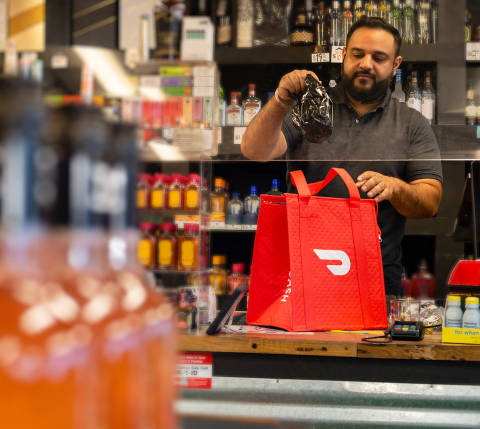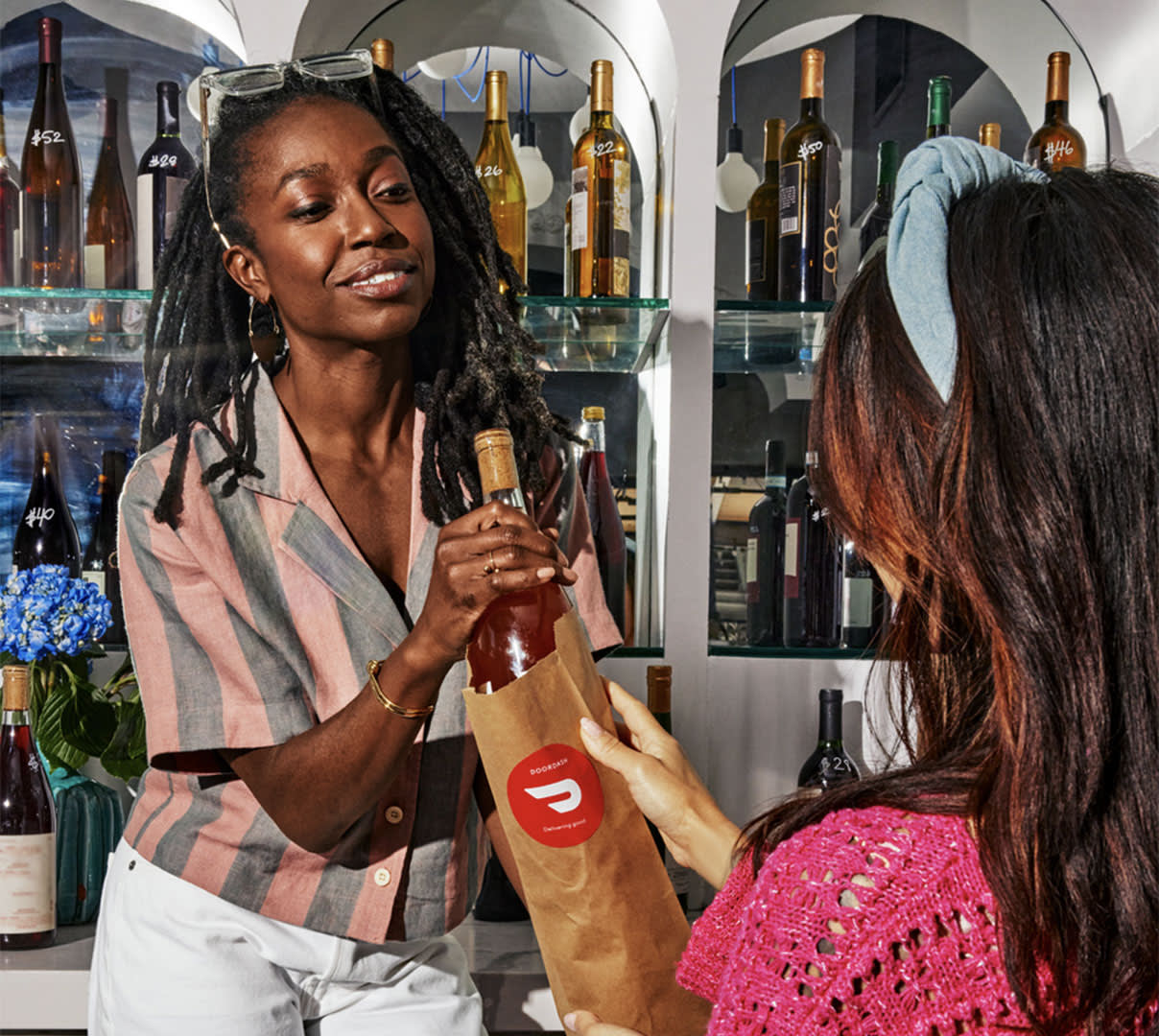Delivery services for food have become a vital stream of business — and a vital stream of additional revenue — for restaurants. But what about delivery for alcoholic beverages? Responsible alcohol delivery has the potential to bring huge value to businesses and customers alike, but rules and regulations can vary significantly between states and provinces.
Typically, the restaurant must also verify the age of the customer placing the order and the individual delivering it. In some areas, laws mandate that restaurants can deliver alcohol only when some type of food dish is being delivered as well.
But of course, requirements differ depending on your business type — if you're a liquor store or another type of alcohol retailer, there are other considerations.
It's imperative to understand the local rules and requirements relevant to your business, including whether your state requires an alcohol delivery certificate. Here's what that means, and how you can start the process of obtaining one.
Is alcohol delivery legal?
For as long as there has been alcohol sold at eating establishments and in stores, there have been laws determining who it can be served to, and how. It's the same situation when it comes to home delivery. Restaurants and retailers need to abide by certain protocols, which may include acquiring an alcohol delivery certification.
This may be a completely new certification, or an addition or expansion of your current liquor license — and fees will vary accordingly. For example, in Washington, DC, the standard alcohol license application now also contains a delivery license addendum. Research what's mandatory in the areas where you operate, and start the application process as soon as possible to expedite approval.
How do alcohol deliveries differ from regular food deliveries?
Maintaining alcohol delivery compliance means making sure both the ordering customer and the delivery driver are of legal drinking age. Certification may also require packaging beverages in specific, sealed, and well-marked containers, and keeping them separate from food items.
Third-party delivery services also have specific rules to follow when it comes to alcohol delivery. These include:
Filing driver information with the state alcoholic beverage control commission or other relevant regulators
Conducting background checks on delivery drivers, and mandating that drivers only accept alcohol delivery orders if they have the correct local permits and qualifications — with copies of those documents available in their vehicles at all times
That means a platform like DoorDash has processes and practices in place to help ensure alcohol is ordered and delivered responsibly.

"We're setting a new industry standard for responsible alcohol delivery."
What are the key steps for obtaining an alcohol delivery certificate?
If you've gone through the process of obtaining a business or liquor license before, applying for an alcohol delivery certification will be similar.
For a restaurant, it may require submitting documentation that demonstrates that you operate legally, serve alcoholic beverages, and gain most of your revenue through the sale of food, whether onsite or through delivery. Examples of this documentation could include your current business license, as well as your business liability insurance, sales tax permit, and the deed or lease for your restaurant.
If you have in-house delivery drivers, you may need to prove that they are both licensed and insured. In some jurisdictions, drivers may be required to undergo training programs or pass exams in order to be allowed to deliver alcoholic beverages for your business.
If partnering with a third-party delivery service, you may need to provide a copy of a written contract that demonstrates compliance with relevant state laws in the jurisdictions where you operate.

How will an alcohol delivery certificate help my business?
For restaurants, alcohol can be a significant booster for revenue. It has a long shelf life, low labor costs, and higher markups compared to the narrow margins of many food items. Offering alcohol delivery increases your potential for profitability.
According to the 2024 Restaurant & Alcohol Online Ordering Trends Report from DoorDash, demand for alcohol delivery is up. 41% of consumers say they're using this service more often than last year, with 39% saying they like the convenience it offers and 37% appreciating how much time it saves them.

"It's simple: DoorDash has made my sales go way up."
Get creative with how you market your alcohol offerings to increase sales. Target specific holidays and festivals to promote alcoholic beverages as celebratory gifts, or feature tantalizing food pairings to entice new audiences on social media. Younger consumers of legal drinking age particularly value the option of alcohol delivery: More than half of millennials (62%) and Gen Z adults (52%) say that they would choose a restaurant over a competitor if it offers alcohol with takeout or delivery orders.
Convenience is a trend that continues to grow in popularity, and profit-focused restaurants are recognizing this. That's why 79% of restaurants view alcohol delivery as an excellent way to drive revenue, and 80% anticipate the demand for delivery overall to keep growing over the next 12 months.
Now that you know how to get an alcohol delivery certificate, learn how to get started offering alcohol delivery through DoorDash.





